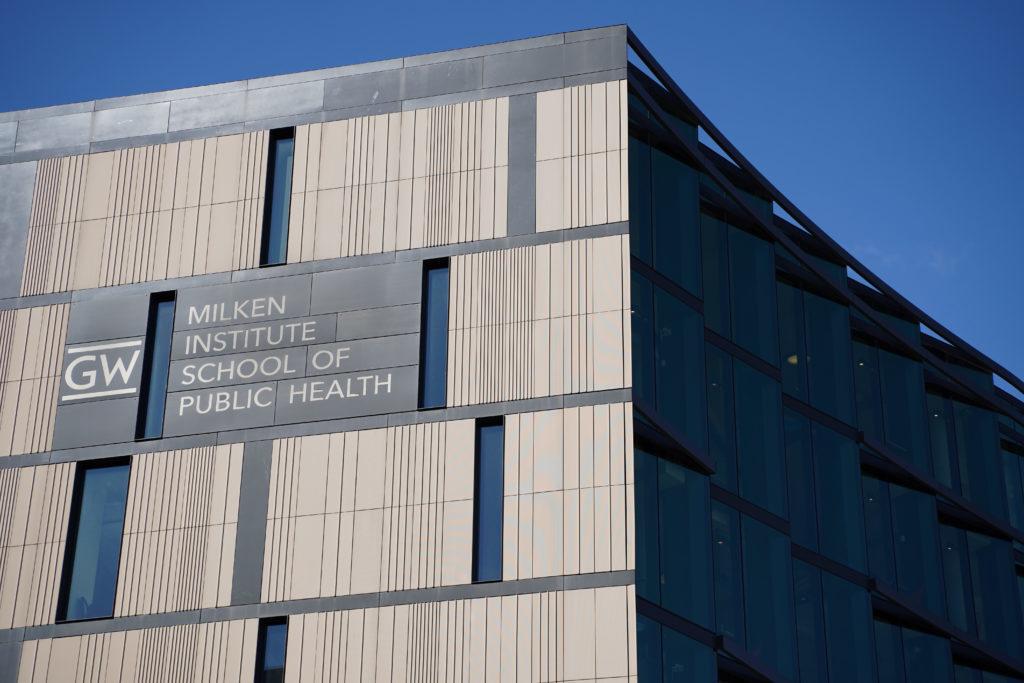Uninsured and underinsured patients may lose access to community health care if Congress does not renew a vital funding source that will expire on Sept. 30, a report from a Milken Institute School of Public Health research team published last week found.
Research scientist Jessica Sharac and Peter Shin, an associate professor of health policy and management, found that community health centers will consider reducing staff numbers and health care services if Congress does not reauthorize the Community Health Center Fund, which constitutes more than 70 percent of community health centers’ federal funding. Health policy experts said low-income, uninsured and underinsured patients across the United States could lose access to primary care services if the fund is not extended.
“Community health centers serve medically underserved communities, so they need stable funding in order to continue to serve patients at current levels and to increase their service capacity to address health problems facing the communities they serve,” Sharac said in an email.
Researchers at the Geiger Gibson/RCHN Community Health Foundation Research Collaborative, which studies community health centers, worked to produce the report, according to a public health school release.
The report states that the Community Health Center Fund provides each community health center with 72 percent of its total federal funding. The money finances treatments and services, like dental care, that are not covered by public or private insurance.
Almost 60 percent of community health centers have stopped hiring or will consider a hiring freeze, and 40 percent of health centers already have or will consider decreasing staff hours or laying off staff in light of concerns over whether the funding will be extended.
Sharac said community health centers provide care to more than 28 million patients, many of whom are uninsured or insured by Medicaid. The team received funding from the Kaiser Family Foundation and the RCHN Community Health Foundation to conduct the study, she said.
Shin, the associate professor of health policy and management, said extending the fund would increase access to health care for medically underserved populations that often face higher risks for chronic illness and premature death.
“By definition, medically underserved communities need more health care resources,” he said in an email.
Shin said community health centers also serve as “economic engines” in low-income neighborhoods because the centers foster job growth. He said the community health centers save $24 billion in health care costs annually.
Shin added that community health centers are often a source of primary health care in rural areas and are “critical” in urban areas where equal health care access is limited. He said health centers are less expensive options than hospital emergency rooms.
“We’re talking about greater scale – larger volume of people and greater opportunity to save costs,” Shin said.
The report states that one-third of health centers surveyed have or might reduce operating hours, and more than a quarter of health centers said they had or might close down a health center location. A quarter of centers surveyed reported that they had eliminated or will consider eliminating dental and some medical services, according to the report.
One in five centers said they had decided or might decide to eliminate or reduce mental health services, while one in six centers already have removed or may remove or reduce substance abuse treatment services, the report states.
Almost 40 percent of centers reported they will reduce services like language translation assistance and transportation to and from health centers, according to the report.
Amy Rosenberg, a lecturer and senior clinical instructor at Harvard University, said community health centers are a vital part of the “health safety net” because the centers are often the most accessible primary health care source for low-income and uninsured populations.
“If this fund does not get reauthorized and funded, then it just may put another significant hole into a key part of the social safety net,” Rosenberg said.
She said community health centers consolidate resources – like optical, dental and mental health services that Medicare and Medicaid insurance usually do not cover – into one medical office. Rosenberg said combining several health care services into one center will benefit rural populations that are generally located farther from private health care services.
“A lot of those services are really what enabled people to be able to access and maintain access to the medical care that they need,” she said.
Kimberley Geissler, an assistant professor of public health at the University of Massachusetts Amherst, said that a five-month funding lapse for community health centers in 2017 prompted hiring freezes and staffing cuts.
Geissler said community health centers are especially useful for people who live in states that did not expand Medicaid because people without insurance have few options for care besides going to hospital emergency rooms.
“Having this outpatient care available is critically important for underserved populations,” she said.




